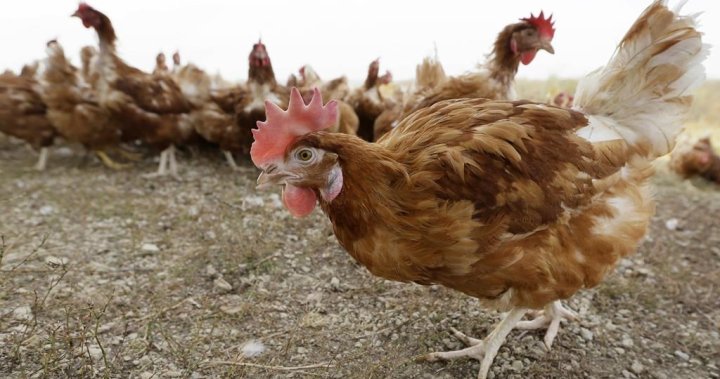
Bird flu risk to humans an ‘enormous concern,’ WHO says. Here’s what to know
Global News
Avian flu is caused by influenza viruses that spread among wild aquatic birds and can infect domestic poultry and other animal species.
The World Health Organization’s top scientist says there is “enormous concern” about the risk of spread of the H5N1 bird flu to humans, but at least one infectious disease expert says Canadians don’t need to worry about changing their daily routine just yet.
Speaking to reporters in Geneva on Thursday, Jeremy Farrar’s warning comes just two weeks after the U.S. Centers for Disease Control and Prevention (CDC) reported a human case of avian influenza in a person who had contact with dairy cows in Texas.
Avian flu, also known as bird flu, is caused by influenza viruses that spread among wild aquatic birds and can infect domestic poultry and other animal species.
The H5N1 avian influenza virus first emerged in southern China in 1996 and has been causing outbreaks in birds since then.
Numerous mammals have been infected over the years, but the recent addition of infection in dairy cattle raised concern among scientists both because it’s never spread to them before and due to the often-close proximity humans can have to these animals.
The Canadian Food Inspection Agency says no cases have been detected in dairy cattle or livestock in Canada, though producers are advised to monitor for signs and contact their veterinarian if they suspect a case.
“The great concern, of course, is that in doing so (spreading) and infecting ducks and chicken, but now increasingly mammals, that virus now evolves and develops the ability to infect humans, and then critically the ability to go from human-to-human transmission,” Farrar said.
“This remains an enormous concern.”













